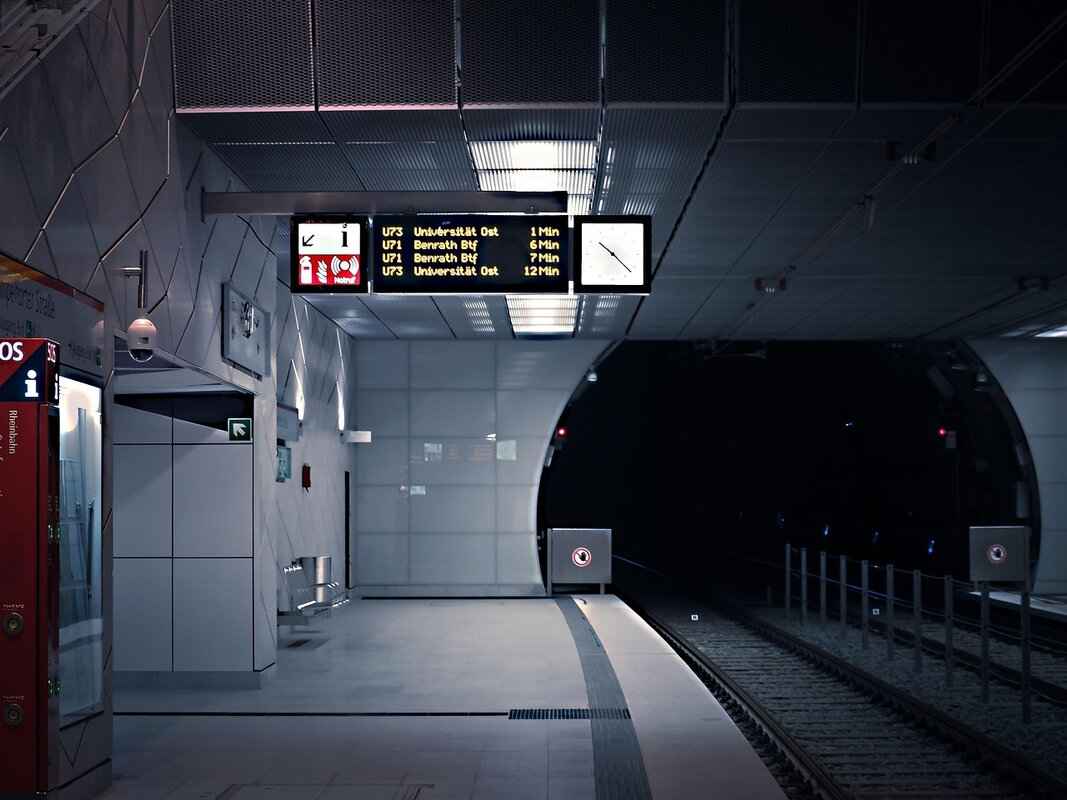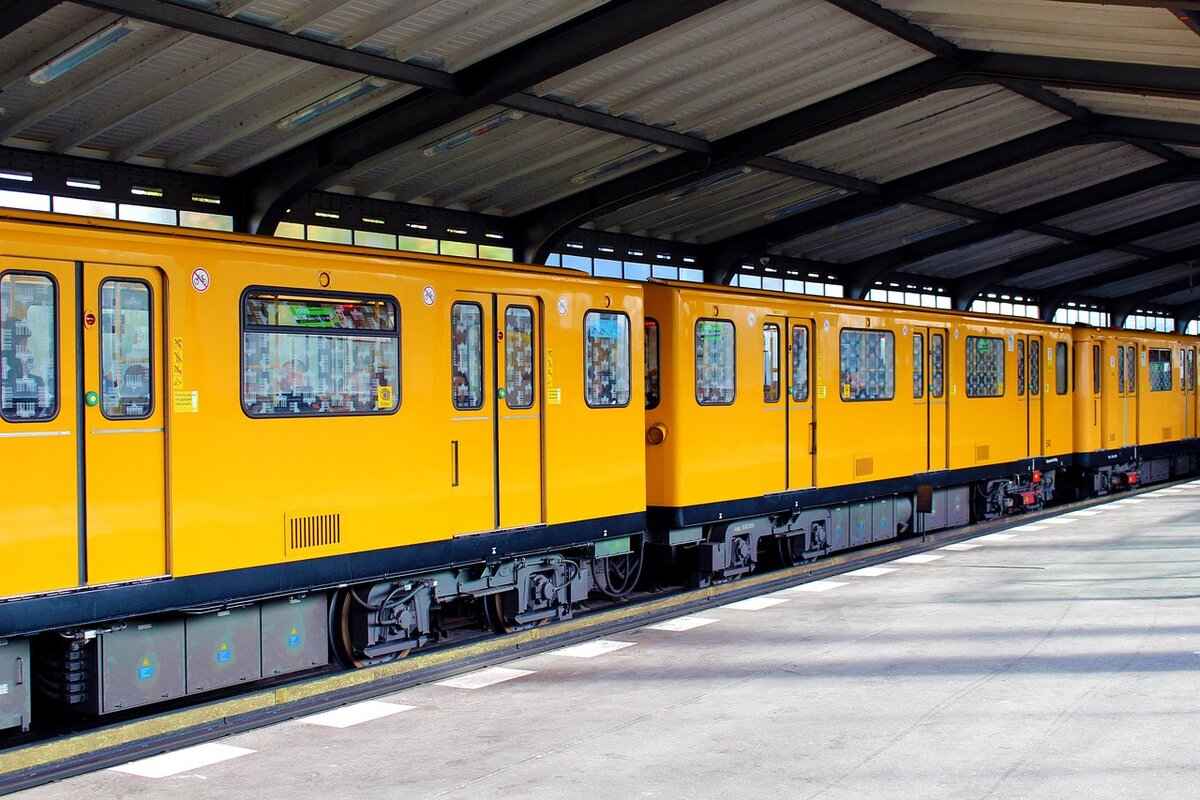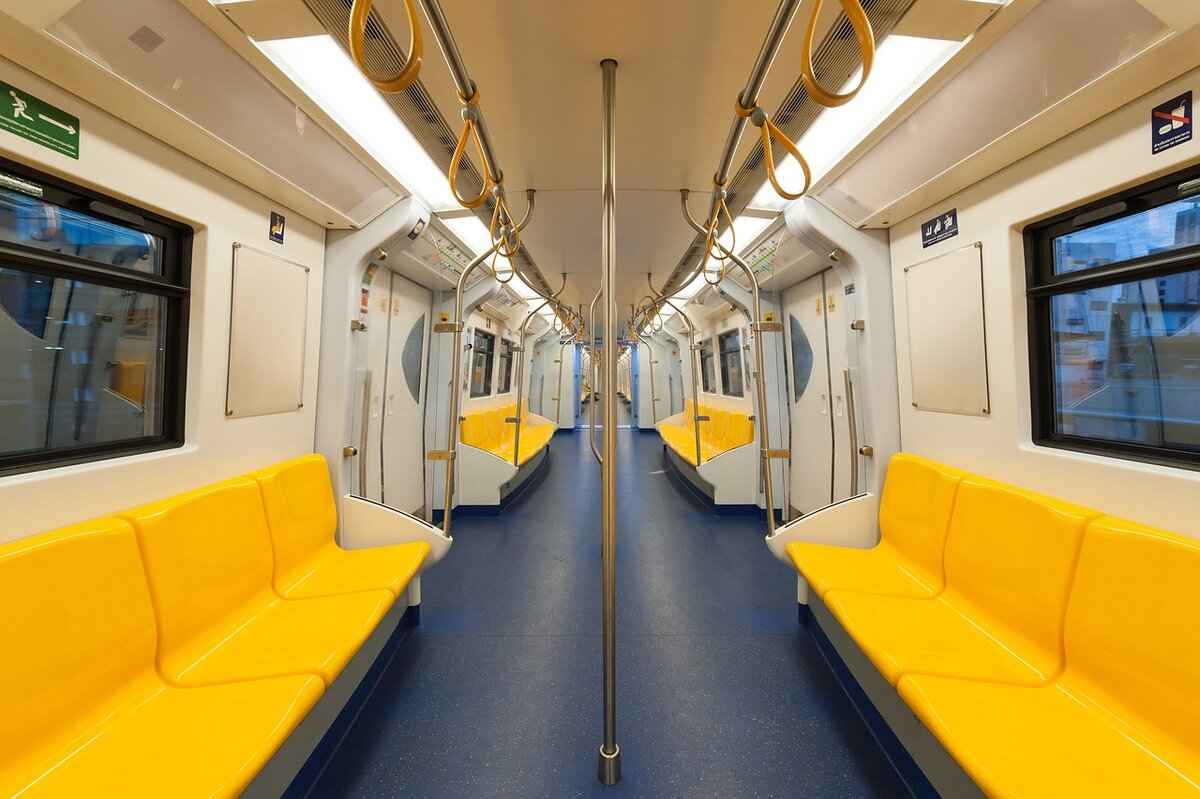Mastering Subway Surfers using a keyboard can elevate your gameplay to new heights. This guide provides essential tips and tricks that will not only enhance your gaming experience but also help you achieve impressive high scores with ease.
Understanding Subway Surfers Controls
To excel in Subway Surfers, it is vital to familiarize yourself with the keyboard controls. The right key mappings can significantly improve your reaction times, allowing you to navigate through the game more effectively.
Customizing Keyboard Settings for Optimal Play
Adjusting your keyboard settings is crucial for a smoother gameplay experience. Customizing key bindings can facilitate quicker movements and enhance your overall performance.
- Choosing the Right Keys for Movement: Selecting comfortable keys for jumping, sliding, and lateral movements can make a substantial difference in your gameplay. Experiment with different configurations to find what suits you best.
- Using Modifier Keys for Advanced Techniques: Modifier keys can unlock advanced maneuvers like quick turns and dodges. Practice incorporating these keys into your gameplay for better agility.
- Creating Macros for Speedy Actions: Setting up macros can streamline your actions, enabling quicker responses when navigating obstacles. This can be a game-changer in achieving high scores.
Practicing Reaction Time and Precision
Improving your reaction time and precision is essential for avoiding obstacles. Regular practice with specific exercises can sharpen these skills, boosting your overall performance.
Utilizing Power-Ups Effectively
Power-ups can provide significant advantages, such as invincibility and score multipliers. Learn to use them strategically to maximize your score during runs.
- Timing Power-Up Usage: Knowing when to activate power-ups can be crucial. Identify the best moments to deploy them for maximum effect.
- Combining Power-Ups for Greater Impact: Effective combinations of power-ups can lead to impressive results. Experiment with different pairings to see what works best for you.
Strategies for Navigating Obstacles
Effective navigation through obstacles is key in Subway Surfers. Develop strategies to avoid collisions while maintaining a high speed.
- Identifying Patterns in Obstacles: Recognizing patterns in obstacles can help you anticipate movements and make quick decisions, leading to smoother gameplay.
- Using the Environment to Your Advantage: The game environment offers various opportunities for strategic movement. Utilize your surroundings to avoid obstacles effectively.
Competing with Friends and Global Players
Subway Surfers allows you to challenge friends and compete with players worldwide. Explore strategies to improve your ranking and compete effectively.
- Sharing Scores and Achievements: Sharing your achievements can motivate both you and your friends. Showcase your scores to encourage friendly competition.
- Participating in Events and Challenges: Engaging in special events can provide unique rewards. Take advantage of these opportunities to enhance your Subway Surfers experience.
Conclusion: Mastering Subway Surfers with Keyboard Skills
By implementing these tips and tricks, you can significantly enhance your Subway Surfers experience. Mastering keyboard controls will lead to improved performance and higher scores in the game.

Understanding Subway Surfers Controls
Familiarizing yourself with the keyboard controls in Subway Surfers is essential for achieving effective gameplay. The game’s fast-paced environment demands quick reflexes and precise movements, making it crucial to master these controls. By learning the keyboard layout and practicing regularly, players can significantly enhance their performance and reaction times.
To begin with, the basic controls for Subway Surfers typically include:
- Arrow Keys: Used for moving left, right, jumping, and sliding.
- Space Bar: Commonly used for jumping over obstacles.
- Shift Key: Often utilized for sliding under barriers.
Understanding these controls will allow players to navigate through the game’s vibrant landscapes with ease. For instance, using the left and right arrow keys for lateral movement can help dodge oncoming trains and obstacles effectively. Meanwhile, mastering the use of the space bar for jumping can prevent collisions with low-hanging obstacles.
Moreover, customizing your keyboard settings can further improve your gameplay. Players can adjust key bindings to suit their preferences, enabling smoother movements and quicker reactions. For example, some players may prefer using WASD keys instead of arrow keys for a more comfortable grip.
In addition, incorporating modifier keys can enhance gameplay strategies. By utilizing keys like Ctrl or Alt, players can execute advanced maneuvers such as quick turns or swift dodges, which can be critical during high-speed chases.
In conclusion, mastering the keyboard controls in Subway Surfers is a fundamental aspect of enhancing your gameplay experience. With practice and the right strategies, players can achieve higher scores and enjoy a more immersive gaming experience.

Customizing Keyboard Settings for Optimal Play
Customizing your keyboard settings is a vital step towards enhancing your gameplay in Subway Surfers. By adjusting key bindings, you can achieve smoother movements and faster reactions. This guide will walk you through the essential adjustments to optimize your keyboard settings for the best gaming experience.
Key bindings refer to the specific keys assigned to various actions in the game. By customizing these bindings, you can tailor the controls to fit your play style, making it easier to execute maneuvers and respond to in-game challenges.
Selecting the most comfortable keys for actions such as jumping, sliding, and moving left or right can greatly enhance your gameplay. Consider using keys that are easily reachable and comfortable for your fingers. Here are some popular key configurations:
- W for jumping
- A for moving left
- D for moving right
- S for sliding
Incorporating modifier keys can enable advanced maneuvers, such as quick turns and swift dodges. For instance, using the Shift key in combination with movement keys can allow for rapid directional changes, giving you an edge over obstacles.
Setting up macros can streamline your actions, allowing for quicker responses. By programming multiple commands into a single key press, you can execute complex maneuvers with ease. This can be particularly useful during high-stakes moments in the game.
Improving your reaction time and precision is essential for avoiding obstacles. Regular practice with your customized settings can help you develop muscle memory, allowing for quicker and more accurate movements as you navigate through the game.
In conclusion, customizing your keyboard settings is a crucial aspect of enhancing your Subway Surfers gameplay. By carefully selecting key bindings, utilizing modifier keys, and practicing regularly, you can significantly improve your performance and enjoy a more immersive gaming experience.
Choosing the Right Keys for Movement
is essential for optimizing your gameplay in Subway Surfers. The effectiveness of your movements can greatly influence your performance, making it crucial to select the most comfortable and responsive keys for actions like jumping, sliding, and lateral movement.
When it comes to key configurations, consider the following aspects:
- Ergonomics: Choose keys that are easily reachable without straining your fingers. Commonly used keys for jumping and sliding are Spacebar and Shift, respectively. These keys are typically located in a comfortable position, allowing for quick access during intense gameplay.
- Consistency: Stick to a consistent layout that feels natural. This consistency will help you develop muscle memory, enabling faster reactions during critical moments in the game.
- Testing Different Configurations: Experiment with various key bindings to find what suits you best. Some players prefer using A and D for lateral movements, while others might opt for the arrow keys. The key is to find a configuration that feels intuitive and allows for smooth transitions between movements.
In addition to selecting the right keys, it’s beneficial to practice regularly. This practice will not only improve your reaction time but also enhance your overall gameplay experience. Engaging in focused practice sessions can lead to significant improvements in your ability to navigate obstacles and respond to in-game challenges.
Ultimately, the right key configuration will empower you to perform advanced maneuvers, dodge obstacles effectively, and achieve higher scores. By prioritizing comfort and responsiveness in your key selection, you will be well on your way to mastering Subway Surfers.
Using Modifier Keys for Advanced Techniques
In the fast-paced world of Subway Surfers, mastering the use of modifier keys can be the difference between a thrilling victory and a frustrating defeat. These keys allow players to execute advanced maneuvers, such as quick turns and swift dodges, which are essential for navigating the challenging environments of the game.
To effectively utilize modifier keys, players should first familiarize themselves with their keyboard layout. Typically, modifier keys include Shift, Ctrl, and Alt. By combining these keys with your movement keys (usually WASD or arrow keys), you can perform advanced actions that enhance your gameplay experience.
- Quick Turns: By holding the modifier key while pressing the direction key, players can execute rapid turns. This technique is crucial for avoiding oncoming obstacles and maintaining speed.
- Swift Dodges: When an obstacle is approaching, a quick press of the modifier key combined with a directional input can allow for swift dodges, helping to evade collisions.
- Enhanced Jumping: Using the modifier key while jumping can increase your jump height or distance, enabling you to clear larger gaps and obstacles.
It is advisable to practice these techniques in a safe environment within the game. Set aside time to focus solely on mastering the use of modifier keys. This practice will not only improve your reflexes but also increase your overall enjoyment of the game.
In conclusion, incorporating modifier keys into your gameplay strategy can significantly enhance your ability to maneuver through the vibrant and chaotic world of Subway Surfers. Mastering these advanced techniques will give you a competitive edge, allowing you to navigate obstacles with finesse and achieve higher scores.
Creating Macros for Speedy Actions
in Subway Surfers can dramatically enhance your gameplay experience. By setting up macros, you can automate repetitive tasks and execute complex maneuvers with ease, allowing for quicker responses to in-game challenges.
Macros are essentially pre-defined sequences of actions that can be triggered with a single keystroke. This feature is particularly useful in fast-paced games like Subway Surfers, where every millisecond counts. Here’s how you can effectively create and implement macros to boost your performance:
- Step 1: Choose Your Macro Software
Select a reliable macro software that is compatible with your keyboard. Popular options include AutoHotkey and Razer Synapse. These programs allow you to record keystrokes and set them to specific keys. - Step 2: Identify Key Actions
Determine which actions you perform frequently during gameplay. This could include jumping, sliding, or switching lanes. Focus on actions that require quick reflexes. - Step 3: Record Your Macro
Using your chosen software, record the sequence of actions you want to automate. For example, you might record a jump followed by a slide to navigate through obstacles seamlessly. - Step 4: Assign Your Macro
Assign the recorded macro to a specific key on your keyboard. Make sure it is easily accessible during gameplay, so you can trigger it without hesitation. - Step 5: Test and Refine
Launch Subway Surfers and test your new macro. Make adjustments as necessary to ensure it fits your play style and enhances your performance.
By utilizing macros, you can streamline your actions and react more swiftly to the fast-paced environment of Subway Surfers. This not only improves your gameplay but also allows you to focus on strategy and enjoyment rather than the mechanics of movement.
In conclusion, mastering the use of macros will empower you to achieve higher scores and navigate challenges more effectively. Embrace this tool to elevate your Subway Surfers experience!
Practicing Reaction Time and Precision
is vital for any gamer, especially in fast-paced games like Subway Surfers. Enhancing these skills can significantly improve your ability to navigate obstacles and achieve higher scores. Here, we will explore effective techniques and exercises that can help you sharpen your reaction time and precision.
- Focus on Hand-Eye Coordination: Engaging in activities that require quick reflexes, such as playing rhythm games or reaction-based apps, can enhance your hand-eye coordination. This is crucial for responding swiftly to in-game challenges.
- Utilize Reaction Time Apps: There are numerous applications designed to test and improve your reaction time. Regularly practicing with these apps can help you track your progress and make necessary adjustments to your gaming strategies.
- Incorporate Reaction Drills: Simple drills, such as tapping a key in response to a visual cue, can be beneficial. Set a timer and challenge yourself to improve your speed over time. This will train your brain to react faster during gameplay.
Moreover, precision is equally important. Here are some exercises to enhance your accuracy:
- Target Practice: Use online target practice games that require you to hit moving targets. This will improve your ability to make precise movements quickly.
- Mouse and Keyboard Coordination: Spend time familiarizing yourself with your keyboard layout. Practice moving your fingers quickly between keys while maintaining accuracy.
- Play with a Purpose: When playing Subway Surfers, focus on specific movements rather than just playing for fun. Set goals for yourself, such as dodging a certain number of obstacles without crashing.
In conclusion, by dedicating time to practice your reaction time and precision through these techniques, you can significantly boost your overall performance in Subway Surfers. Remember, consistent practice is key to mastering these essential skills.

Utilizing Power-Ups Effectively
In the world of Subway Surfers, power-ups serve as game-changers that can dramatically enhance your gameplay experience. These special items not only provide temporary advantages, such as invincibility and score multipliers, but also create opportunities for strategic gameplay. Understanding how to effectively utilize power-ups can lead to higher scores and more enjoyable runs.
Understanding Different Types of Power-Ups
- Super Sneakers: Allows you to jump higher and evade obstacles with ease.
- Coin Magnet: Attracts nearby coins, ensuring you collect as many as possible.
- Score Multiplier: Boosts your score for a limited time, rewarding your performance.
- Invincibility: Grants temporary immunity from obstacles, allowing you to run freely.
Timing Power-Up Usage
Knowing when to activate your power-ups can be crucial for maximizing their effectiveness. For instance, activating the Invincibility power-up just before a challenging section can help you navigate through difficult obstacles without fear of crashing. Similarly, using the Score Multiplier during a high-coin collection phase can significantly boost your score.
Combining Power-Ups for Greater Impact
Combining different power-ups can create powerful synergies that enhance your gameplay. For example, using the Coin Magnet in conjunction with the Score Multiplier can lead to an exponential increase in your score. Experimenting with various combinations will help you discover what works best for your play style.
Conclusion
Mastering the use of power-ups in Subway Surfers is essential for any player looking to improve their skills and achieve high scores. By understanding the different types of power-ups, timing their usage, and combining them effectively, you can elevate your gameplay to new heights. Implement these strategies in your next run to see a significant improvement in your performance!
Timing Power-Up Usage
is a critical aspect of achieving success in Subway Surfers. Knowing when to activate your power-ups can be the difference between a high score and a disappointing run. This section delves into the best moments to utilize these powerful boosts for maximum effectiveness during your gameplay.
Power-ups in Subway Surfers include items like the Super Sneakers, which enhance your jumping ability, and the Coin Magnet, which attracts coins towards you. Understanding the timing of these power-ups can significantly impact your performance. Here are some key strategies:
- Start Strong: Activate power-ups right at the beginning of your run. This sets a positive momentum, allowing you to collect more coins and build your score quickly.
- When Facing Obstacles: Use power-ups like the Shield when you are approaching a challenging section with many obstacles. This will protect you from crashing and give you the chance to navigate through safely.
- During Coin Rushes: If you see a large cluster of coins, activating the Coin Magnet at this moment can maximize your coin collection, boosting your score significantly.
- Near the End of Your Run: If you are nearing the end of your run and have accumulated a good number of coins, using a power-up can help you secure a higher score and make the most out of your remaining time.
Moreover, combining power-ups can also yield impressive results. For instance, using the Super Sneakers in conjunction with the Coin Magnet can help you soar over obstacles while simultaneously collecting coins. This synergy can lead to a remarkable score increase.
In conclusion, mastering the timing of your power-ups is essential for maximizing your score in Subway Surfers. By strategically activating these boosts during key moments, you can enhance your gameplay and achieve impressive results.
Combining Power-Ups for Greater Impact
In the fast-paced world of Subway Surfers, power-ups play a crucial role in elevating your gameplay and achieving high scores. However, simply using power-ups individually may not yield the best results. By strategically combining different power-ups, players can unlock impressive benefits that significantly enhance their performance.
To maximize your gameplay, consider the following effective power-up combinations:
- Super Sneakers + Coin Magnet: This combination allows you to not only jump higher and avoid obstacles more effectively but also attract coins from a distance. It’s a great way to accumulate points while maintaining speed.
- Jetpack + Score Multiplier: Using a jetpack to fly over obstacles while activating a score multiplier can lead to massive point gains. Since you are airborne, you can collect coins without the risk of crashing.
- Magnet + Double Jump: The coin magnet ensures you gather coins effortlessly, while the double jump gives you the agility to maneuver over tricky obstacles. This combination is excellent for players looking to maintain momentum.
Timing is also essential when it comes to using these combinations. Activate your power-ups during moments of high coin density or when faced with challenging obstacles. This will ensure you get the most out of each power-up, allowing you to maintain a steady pace while maximizing your score.
Moreover, experimenting with different combinations can lead to unique strategies tailored to your playing style. Each run can be an opportunity to test new pairings and discover what works best for you.
In conclusion, combining power-ups in Subway Surfers not only amplifies your performance but also adds an exciting layer of strategy to the game. By understanding the synergies between different power-ups and timing their use effectively, you can achieve higher scores and enjoy a more thrilling gameplay experience.

Strategies for Navigating Obstacles
in Subway Surfers are essential for players aiming to enhance their gameplay experience. Mastering these strategies not only helps in avoiding collisions but also allows players to maintain high speeds throughout their runs. Below, we explore various techniques to effectively navigate through the game’s dynamic environment.
- Recognizing Obstacle Patterns: One of the key strategies is to identify recurring patterns in the obstacles. Each level presents specific configurations that can be memorized. By recognizing these patterns, players can anticipate their movements and react swiftly, enabling smoother navigation.
- Utilizing the Environment: The game environment is filled with elements that can be leveraged to your advantage. For instance, players can use trains and barriers as shields or jump over them to avoid collisions. Observing the layout of the tracks can provide insights into the best paths to take.
- Timing Your Movements: Effective timing is crucial in Subway Surfers. Players should practice jumping and sliding at the right moments to dodge obstacles. This requires keen observation and quick reflexes, which can be developed through regular gameplay.
- Maintaining High Speed: Speed is vital in Subway Surfers. Players can maintain speed by continuously collecting coins and power-ups, which not only enhance performance but also keep the momentum going. Avoiding unnecessary detours can also help in retaining high speeds.
- Using Power-Ups Wisely: Power-ups can be game-changers when navigating through obstacles. For instance, the Jetpack allows players to fly over obstacles, while the Super Sneakers increase jump height, making it easier to bypass challenging sections. Knowing when to activate these can significantly improve your run.
In conclusion, mastering these in Subway Surfers is essential for achieving high scores and enjoying the game to its fullest. By recognizing patterns, utilizing the environment, timing movements, maintaining speed, and using power-ups effectively, players can enhance their overall gameplay experience.
Identifying Patterns in Obstacles
is a crucial skill for achieving success in Subway Surfers. By honing your ability to recognize these patterns, you can anticipate movements and make quick decisions that enhance your gameplay experience.
Every run in Subway Surfers presents a unique set of challenges, but many of these challenges follow recognizable patterns. Understanding these patterns allows players to navigate through obstacles with greater ease and efficiency. Here are some key strategies to help you identify and utilize these patterns effectively:
- Watch for Repeated Sequences: Many obstacle arrangements repeat after a certain distance. Pay attention to these sequences and learn how to react to them quickly.
- Observe the Speed of Incoming Obstacles: The speed at which obstacles approach can indicate their type and the best way to avoid them. Recognizing fast-moving objects versus slower ones can help you decide when to jump or slide.
- Learn the Layout of the Environment: Each level has specific layouts that can help you predict where obstacles will be. Familiarize yourself with these layouts to improve your reaction time.
- Practice Makes Perfect: Regular practice will enhance your ability to recognize these patterns. The more you play, the better you will become at anticipating movements and making split-second decisions.
In addition to recognizing patterns, you should also focus on using the environment to your advantage. The game features various elements that can assist you in avoiding obstacles, such as trains and barriers. By combining your knowledge of obstacle patterns with strategic use of the environment, you can significantly improve your gameplay.
In conclusion, mastering the art of identifying obstacle patterns is essential for any Subway Surfers player. By developing this skill, you can enhance your decision-making abilities and enjoy smoother gameplay. Remember to keep practicing and refining your techniques to stay ahead of the competition!
Using the Environment to Your Advantage
In Subway Surfers, the game environment is not just a backdrop; it is a vital component that can be leveraged to enhance your gameplay. Understanding how to navigate this environment strategically can make a significant difference in your performance and overall enjoyment of the game.
First and foremost, pay attention to the layout of the tracks. Each run presents a unique set of obstacles, such as trains, barriers, and other hazards. By observing the patterns of these obstacles, players can anticipate their movements and plan their actions accordingly. This foresight allows for smoother navigation and fewer collisions.
Moreover, the game features various elements in the environment that can be used to your advantage. For instance, utilizing power-ups effectively can turn the tide in challenging situations. When you see a power-up approaching, consider the timing of your movements to collect it while avoiding nearby obstacles. This strategic use of the environment can lead to higher scores and prolonged gameplay.
Additionally, players should take advantage of the space available to them. The ability to move left or right, jump, and slide can be used in conjunction with the surrounding elements. For example, if a train is coming from the left, quickly sliding to the right can help you dodge the obstacle while maintaining your speed. This agility is crucial for keeping up with the fast-paced nature of the game.
Furthermore, certain sections of the tracks may offer shortcuts or alternate routes. Exploring these paths can provide opportunities to bypass dense clusters of obstacles, allowing for a more fluid run. Players who are familiar with the map and its intricacies can capitalize on these advantages, leading to improved performance and higher scores.
In conclusion, mastering the use of the environment in Subway Surfers is essential for any player looking to enhance their gameplay experience. By observing obstacle patterns, utilizing power-ups, and exploring alternate routes, players can navigate the game with greater efficiency and skill. Embrace these strategies to elevate your game and achieve new high scores.

Competing with Friends and Global Players
Subway Surfers is not just about dodging trains and collecting coins; it also incorporates competitive elements that allow players to challenge their friends and compete against players from around the world. This aspect of the game adds an exciting layer, encouraging players to refine their skills and improve their rankings.
One effective way to enhance your competitive edge is by understanding the game’s scoring system. Players earn points through various actions, such as collecting coins, completing missions, and using power-ups. The more you play, the better you can strategize to maximize your score during each run.
- Challenge Friends: Use the game’s social features to challenge your friends directly. Competing against friends can motivate you to improve your skills.
- Global Leaderboards: Aim for a spot on the global leaderboards. Tracking your ranking can provide a sense of accomplishment and drive you to play more strategically.
To compete effectively, consider the following strategies:
- Practice Regularly: Regular gameplay will help you become familiar with the maps and obstacles, allowing for quicker reactions.
- Analyze Your Runs: After each game, take a moment to review what went well and what didn’t. This reflection can help you identify areas for improvement.
- Utilize Power-Ups Wisely: Knowing when to activate power-ups can make a significant difference. Use them at strategic moments to gain maximum benefit.
Participating in special events and challenges can also provide unique rewards, enhancing your overall experience while boosting your competitive spirit. Engaging with the community through forums and social media can offer additional tips and insights from experienced players.
In conclusion, by leveraging the competitive aspects of Subway Surfers, you can not only improve your gameplay but also enjoy a more engaging experience. Challenge your friends, climb the leaderboards, and make the most out of every run!
Sharing Scores and Achievements
Sharing your achievements in games like Subway Surfers is not just about boasting; it can be a powerful motivator for both you and your friends. When you showcase your scores, you inspire others to push their limits and engage in friendly competition. This article explores the importance of sharing your gaming milestones and offers practical tips on how to do it effectively.
Sharing your scores can create a sense of community among players. It fosters friendly rivalry and encourages players to improve their skills. When you share your achievements, you not only celebrate your own success but also invite others to join in the fun. This can lead to more engaging gameplay experiences and stronger connections with fellow gamers.
- Social Media Platforms: Use platforms like Facebook, Twitter, or Instagram to post screenshots of your highest scores. Include hashtags related to Subway Surfers to reach a wider audience.
- Gaming Forums: Participate in online gaming communities. Share your achievements in dedicated threads or forums, encouraging discussions and tips among players.
- Streaming Services: Consider live streaming your gameplay on platforms like Twitch or YouTube. This not only allows you to share your scores in real-time but also interact with viewers.
To further motivate your friends, challenge them to beat your scores. You can set up a leaderboard within your friend group, where everyone can share their best scores. This not only makes the game more exciting but also helps everyone improve their skills as they strive to outdo each other.
Many games, including Subway Surfers, host special events and challenges that can provide unique rewards. Participating in these events and sharing your achievements can enhance your gaming experience and offer new opportunities for competition.
In conclusion, sharing your scores and achievements is a fantastic way to enhance your gaming experience and motivate both yourself and your friends. By leveraging social media, gaming forums, and friendly competitions, you can create a vibrant community around your shared love for Subway Surfers.
Participating in Events and Challenges
in Subway Surfers can be an exhilarating way to elevate your gaming experience. These special events often come with unique themes and offer players the chance to earn exclusive rewards, such as characters, hoverboards, and coins. To maximize your enjoyment and benefits from these opportunities, it’s essential to understand how to navigate and take full advantage of them.
First, always stay updated on the event calendar. Subway Surfers frequently hosts seasonal events, holiday specials, and limited-time challenges. By keeping an eye on these announcements, you can prepare in advance and strategize your gameplay accordingly.
Participating in these challenges not only enhances your skills but also allows you to compete against other players globally. Here are some effective strategies to make the most out of these events:
- Understand Event Objectives: Each event has specific goals. Whether it’s collecting a certain number of items or completing a set distance, knowing the objectives will help you focus your efforts efficiently.
- Utilize Power-Ups: During events, power-ups can be your best friend. Make sure to use them strategically to boost your performance and achieve the event goals more quickly.
- Join a Community: Engaging with fellow players can provide valuable tips and tricks. Join forums or social media groups where players share their experiences and strategies regarding events.
- Track Your Progress: Keep an eye on your achievements during the event. This will help you identify areas for improvement and ensure you’re on track to meet the event goals.
In addition to these strategies, participating in events can also unlock exclusive cosmetic items that enhance your character’s appearance and gameplay. These rewards can be a great motivator to engage fully in the challenges offered.
In conclusion, embracing the events and challenges in Subway Surfers not only enriches your gaming experience but also provides numerous rewards that can be beneficial in your overall gameplay. By staying informed, utilizing power-ups wisely, and connecting with the community, you can significantly enhance your performance and enjoyment of the game.

Conclusion: Mastering Subway Surfers with Keyboard Skills
Enhancing your gameplay in Subway Surfers can be an exciting journey, especially when utilizing keyboard controls. By implementing these tips and tricks, you can significantly elevate your experience, leading to improved performance and higher scores. Mastering keyboard controls is essential, as it allows for quicker reactions and smoother movements, which are crucial for navigating the fast-paced environment of the game.
Familiarizing yourself with the keyboard controls is the first step towards becoming a proficient player. Each key plays a specific role in your movement, and knowing how to use them effectively can drastically enhance your gameplay.
Adjusting your keyboard settings is vital for a personalized experience. By customizing key bindings, you can ensure that your fingers are always in the right position for quick actions, such as jumping or sliding.
- Jump: Assign a key that feels comfortable for you, such as the spacebar or ‘W’.
- Slide: Use a key that is easily accessible, like ‘S’ or ‘Down Arrow’.
- Left/Right Movement: Consider using ‘A’ and ‘D’ or the arrow keys for fluid navigation.
Incorporating modifier keys can help you perform advanced maneuvers. For instance, using Shift or Ctrl in combination with movement keys can enable quick dodges and turns, giving you an edge over obstacles.
Setting up macros can streamline your actions, allowing for quicker responses. This can be particularly useful during intense gameplay moments where every second counts.
Improving your reaction time is essential for avoiding obstacles. Regular practice and specific exercises can help sharpen your skills, ensuring you maintain a high performance level.
Power-ups are game-changers in Subway Surfers. Understanding how to use them strategically can lead to impressive scores and a more enjoyable experience.
Knowing when to activate power-ups is crucial. Timing your usage can make the difference between a successful run and a crash.
Utilizing combinations of power-ups can amplify their effects. Experiment with different pairings to discover what works best for your gameplay style.
Effective navigation through obstacles is key to maintaining speed and avoiding collisions. Recognizing patterns and using the environment to your advantage can significantly improve your gameplay.
Engaging with friends and global players adds an exciting competitive element. Sharing scores and participating in events can motivate you to improve.
By implementing these strategies, you can master Subway Surfers using keyboard controls. Enhanced performance and higher scores are within your reach, making your gameplay experience more enjoyable and rewarding.
Frequently Asked Questions
- Can I play Subway Surfers using only my keyboard?
Absolutely! Subway Surfers can be played using keyboard controls, which can enhance your gameplay experience. Familiarizing yourself with the key bindings is key to mastering the game.
- What are the best keys to use for movement?
Choosing comfortable keys for jumping, sliding, and moving left or right can make a big difference. Many players prefer using the arrow keys or WASD for smoother movements.
- How can I improve my reaction time while playing?
Practicing regularly can significantly enhance your reaction time. Additionally, you can try specific exercises that focus on quick decision-making and precision to boost your performance.
- What are power-ups, and how should I use them?
Power-ups provide temporary advantages like invincibility or score multipliers. Timing their usage is crucial; activate them at strategic moments to maximize their benefits during your runs.
- How can I compete with friends in Subway Surfers?
You can challenge friends by sharing your scores and achievements. Engaging in special events and challenges also adds a competitive element and can help you climb the leaderboard.














